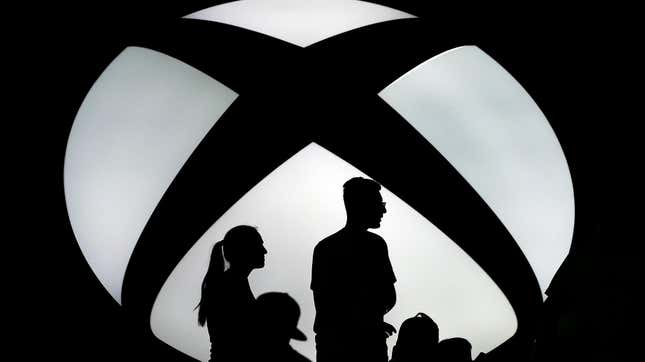
Microsoft is trying to strike a more conciliatory tone with organized labor as it looks to get its $69 billion mega video game merger with Activision Blizzard OK’d by the Federal Trade Commission. Vice chairman and president Brad Smith wrote that the company is “committed to creative and collaborative approaches with unions” in a blog post Thursday. It’s a rare proactive step that comes shortly after a group of Activision Blizzard developers formed the first ever union at a major gaming company.
“Our employees will never need to organize to have a dialogue with Microsoft’s leaders,” Smith wrote. “But we also recognize the workplace is changing. That’s why we are sharing principles to guide our approach with labor organizations.” He proceeded to lay out principles for dealing with unions that stopped just short of actually saying Microsoft would voluntarily recognize any new unions employees tried to form in the future. The comments also come after recent reports that the FTC will be looking into the impact on labor when it reviews Microsoft’s deal to buy Activision Blizzard.
Communications Workers of America Secretary-Treasurer Sara Steffens called the announcement “encouraging and unique among the major tech companies” in a statement, but also said “these principles must be put into action and incorporated into Microsoft’s day-to-day operations and its expectations for its contractors.” Microsoft did not immediately respond to a request for comment.
Bosses signaling acceptance of unions is rare, especially in tech and video games. While management at indie studio Vodeo Games voluntarily recognized a staff union, leadership at Activision Blizzard fought to defeat a union drive at Call of Duty studio Raven Software, and even after failing still maintains the union vote that formed it was illegitimate. Last week, Microsoft Gaming CEO Phil Spencer said the tech giant would recognize the union even after its $69 billion deal to acquire Activision Blizzard goes through, noting that he had educated himself on the subject after ducking questions earlier in the year.
The new tone echoes sentiments shared by a recent rival. “As a leader, you need to look hard,” former Nintendo of America president Reggie Fils-Aime said in a recent interview. “And if this [unions are] what your employees want, you need to address that and embrace it, and move forward.” Nintendo, meanwhile, is currently facing a backlash over its reported exploitation of permalancers. A recent National Labor Relations Board complaint also accused it of surveillance and retaliation when a temporary employee was fired after asking about unions in a department meeting (the company has said they were terminated for violating their NDA).
For years in the U.S., video game developers unionizing existed only as a thought experiment (they are more common in Europe). More recently, employees at video game companies both big and small have started fighting for more control over issues like pay, crunch, return to the office policies, and workplace misconduct. With companies raking in mega profits, inflation at record highs, and a super tight labor market for talent, developers are starting to use their leverage.
After a California lawsuit alleged widespread sexual harassment and discrimiation at Activision Blizzard, some current and former developers there formed the ABK Workers Alliance to push for executive accountability and changes to workplace policies. Developers at Ubisoft later followed suit, calling for more aggressive action at their company in the wake of its own sexual misconduct reckoning.
At Activision, this culminated in QA at Raven winning a union vote even after lodging multiple NLRB complaints against the publisher. Inspired by their organizing effort, and similar campaigns at places like Starbucks, Amazon, and Apple, contract workers at BioWare went ahead and formed a union as well. Over a dozen QA staff working on games like Dragon Age: Dreadwolf are currently awaiting the results of their vote, which if successful would embed the first union at an Electronic Arts studio.
“[The Raven union is] going to be the spark that ignites the rest of the industry, I believe,” Jessica Gonzalez, a former Activision Blizzard QA developer who helped organize its employees, told The New York Times last month. Microsoft has now at least promised not to get in the way of that.

